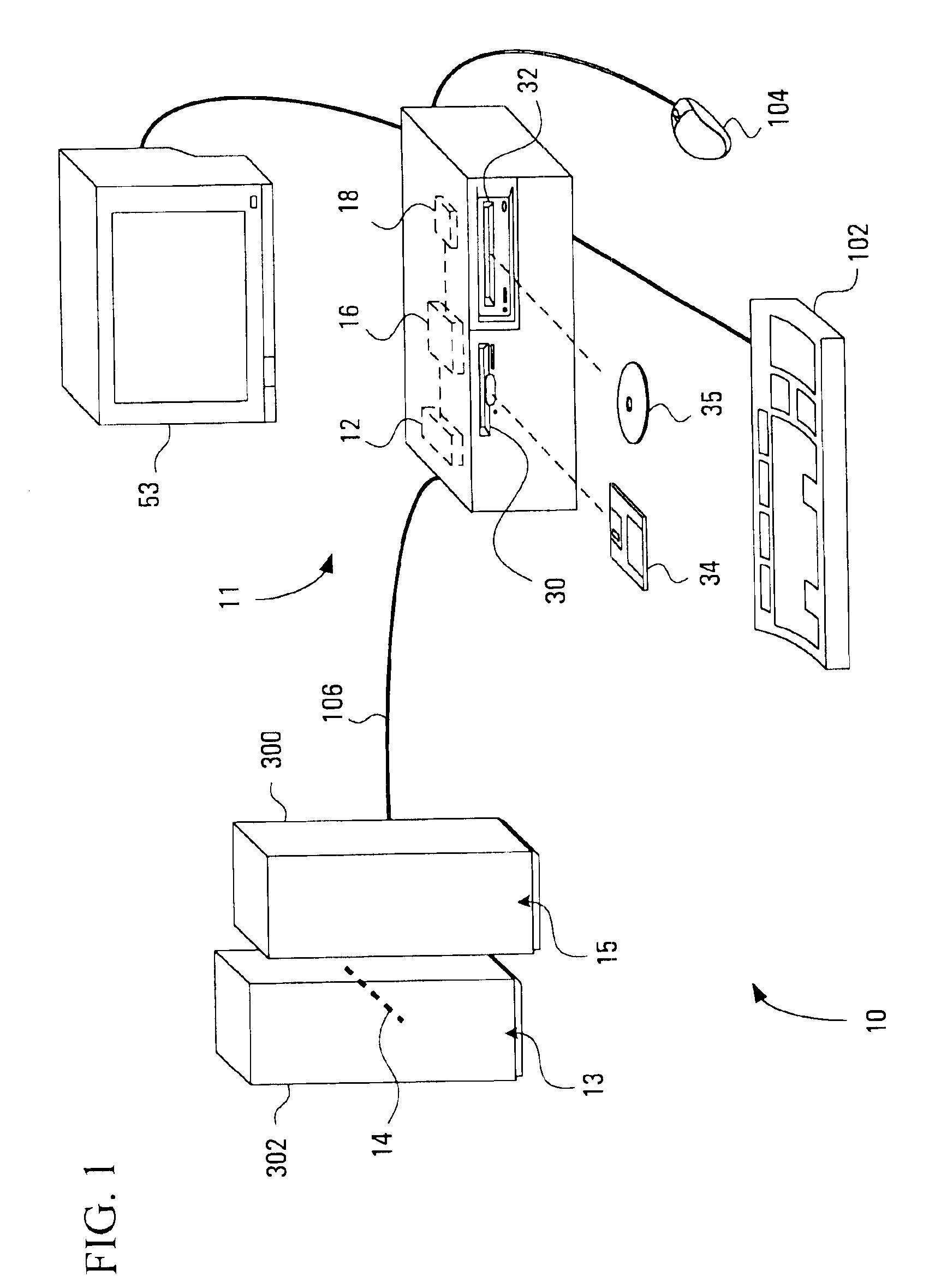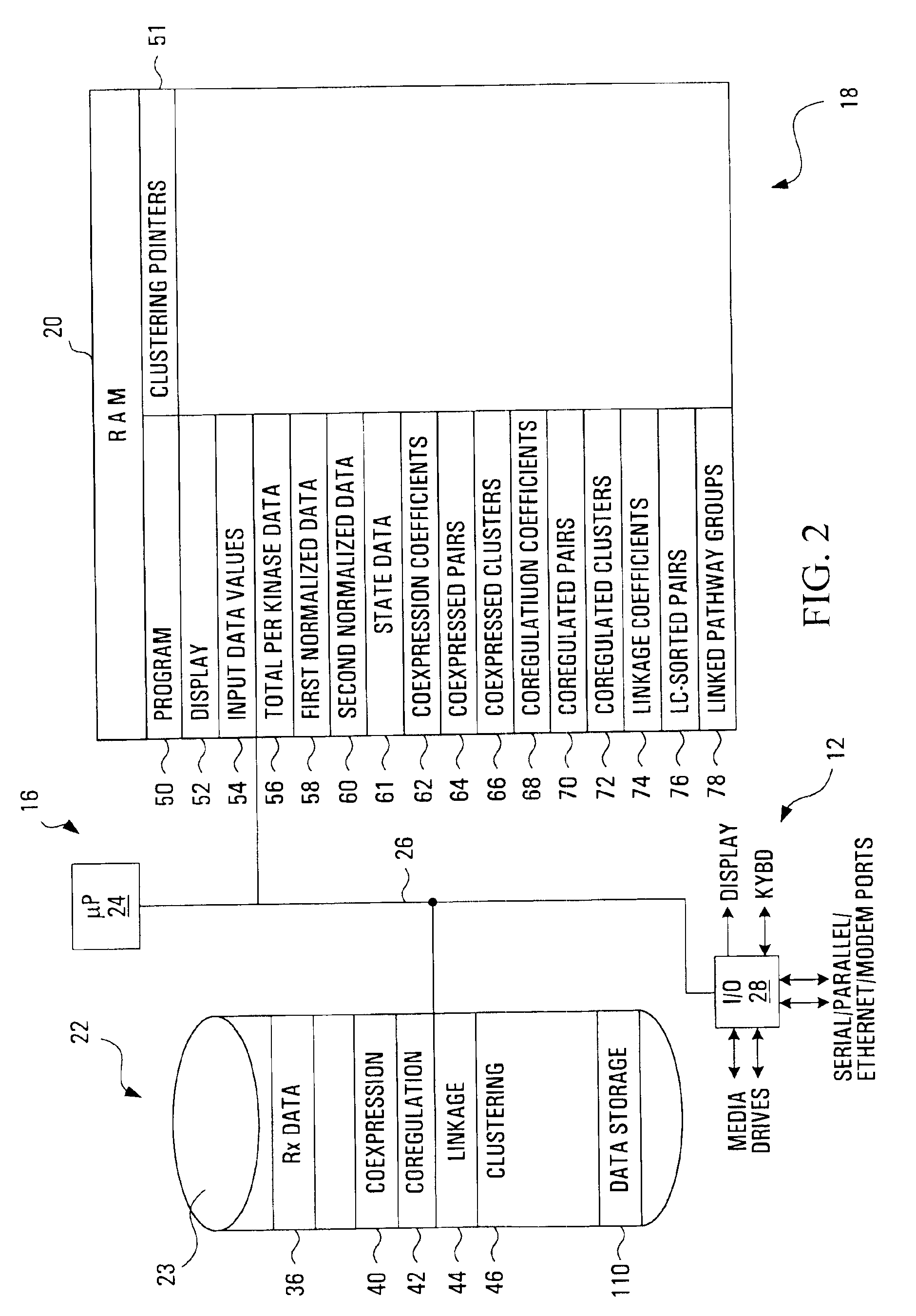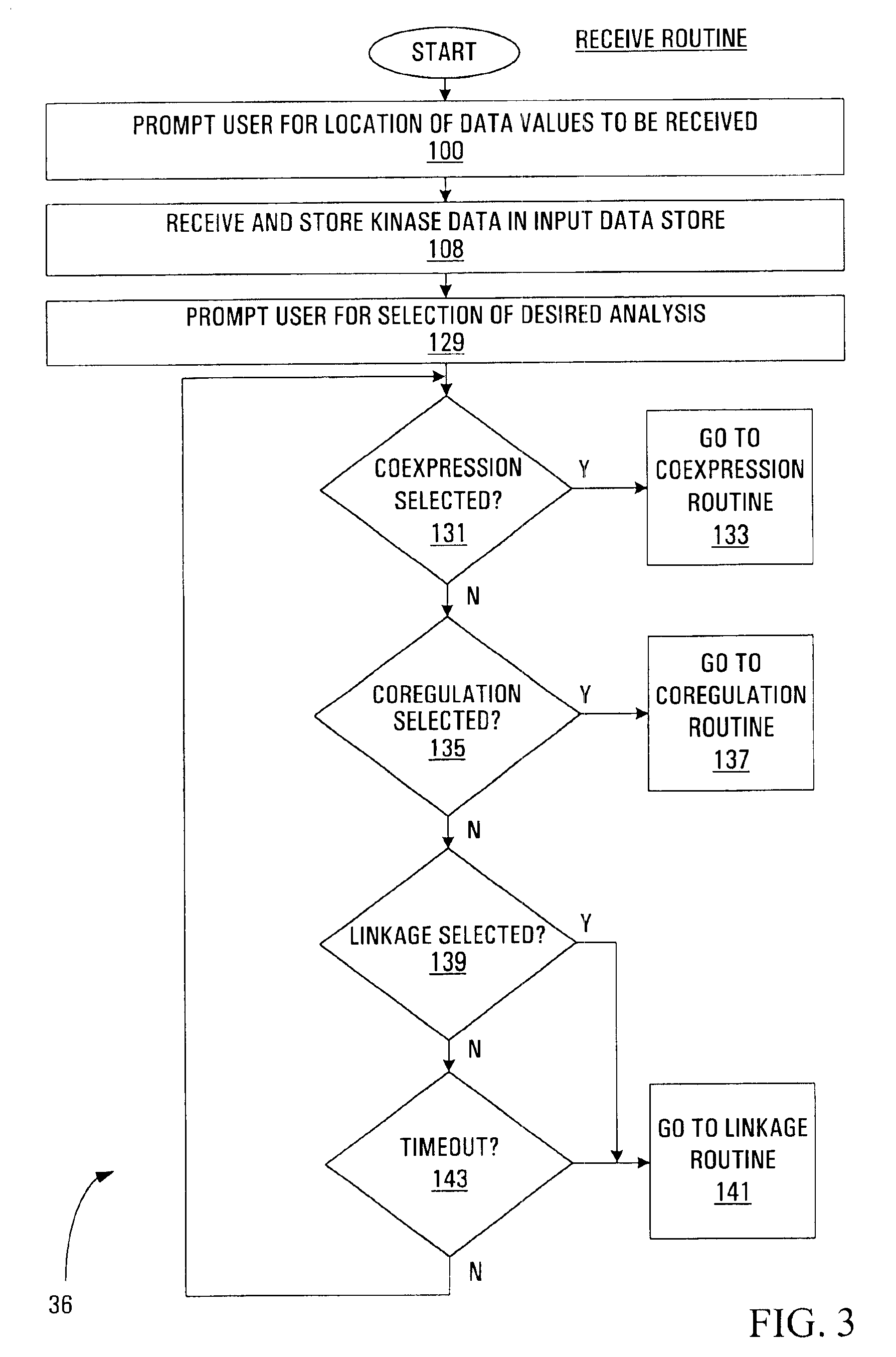Method, apparatus, media and signals for identifying associated cell signaling proteins
a cell signaling protein and signaling technology, applied in chemical methods analysis, biochemistry apparatus and processes, instruments, etc., can solve the problems of large difficulty in detecting protein kinases, inability to monitor post-translational events such as phosphorylation, and inability to use nucleic acid-based techniques such as those used for gene expression detection to monitor post-translational events
- Summary
- Abstract
- Description
- Claims
- Application Information
AI Technical Summary
Benefits of technology
Problems solved by technology
Method used
Image
Examples
Embodiment Construction
xpression coefficients store defined in the memory shown in FIG. 2;
[0043]FIG. 10 is a schematic representation of a coexpressed pairs store defined in the memory shown in FIG. 2;
[0044]FIG. 11 is a schematic representation of a coexpressed clusters store defined in the memory shown in FIG. 2;
[0045]FIG. 12 is a flowchart of a clustering subroutine executed by the processor circuit shown in FIG. 2;
[0046]FIG. 13 is a flowchart of a coregulation routine executed by the processor circuit shown in FIG. 2;
[0047]FIG. 14 is a tabular representation of a state data store defined in the memory shown in FIG. 2;
[0048]FIG. 15 is a tabular representation of a coregulation coefficients store defined in the memory shown in FIG. 2;
[0049]FIG. 16 is a schematic representation of a coregulated pairs store defined in the memory shown in FIG. 2;
[0050]FIG. 17 is a schematic representation of a coregulated clusters store defined in the memory shown in FIG. 2;
[0051]FIG. 18 is a flowchart of a linkage routine ...
PUM
 Login to View More
Login to View More Abstract
Description
Claims
Application Information
 Login to View More
Login to View More - R&D
- Intellectual Property
- Life Sciences
- Materials
- Tech Scout
- Unparalleled Data Quality
- Higher Quality Content
- 60% Fewer Hallucinations
Browse by: Latest US Patents, China's latest patents, Technical Efficacy Thesaurus, Application Domain, Technology Topic, Popular Technical Reports.
© 2025 PatSnap. All rights reserved.Legal|Privacy policy|Modern Slavery Act Transparency Statement|Sitemap|About US| Contact US: help@patsnap.com



